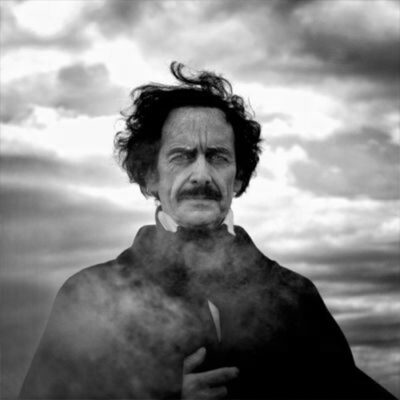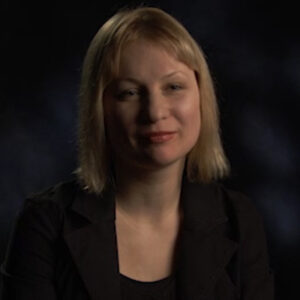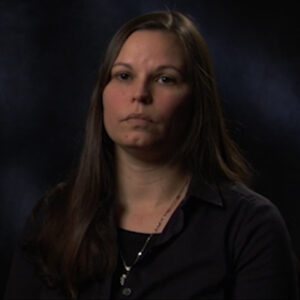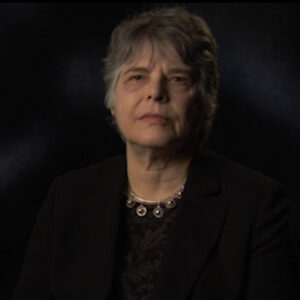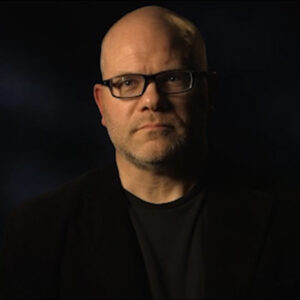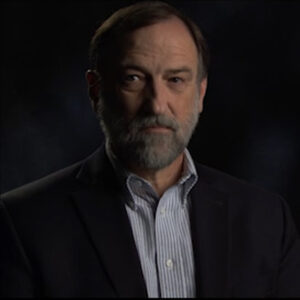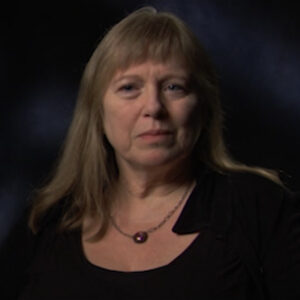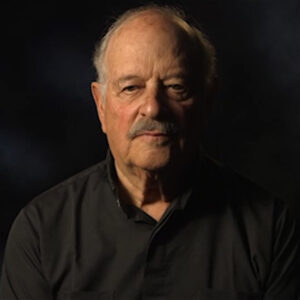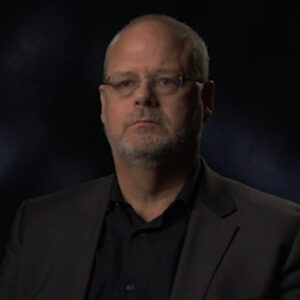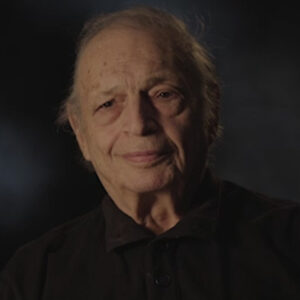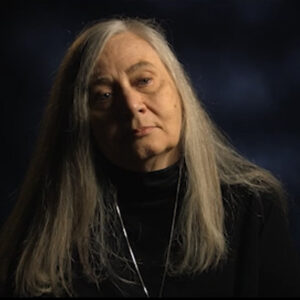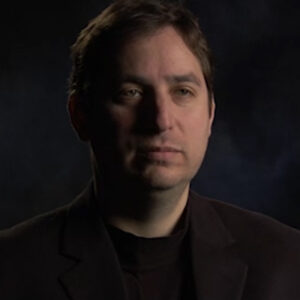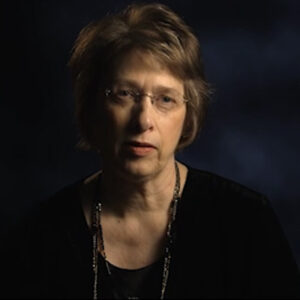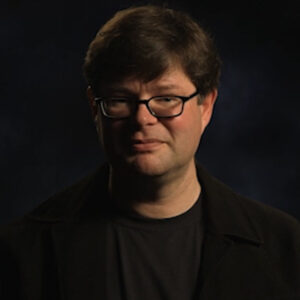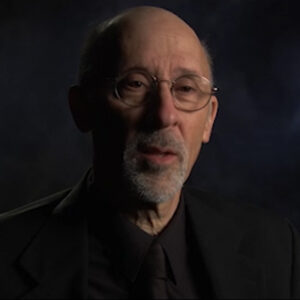Speaker Poe was very conscious of his image. He. Had an idea of himself as a gentleman, unfortunately, he did not have gentlemanly credentials, his background, his mother was an actress, which at the time was not, you know, people enjoyed actresses and things, but it was not really something that was looked up to. And she even just played small places. And she and his father, I should mention, too, was an actor as well. So he didn’t have the pedigree that he tried to present himself with. He dressed the part.
Speaker He and the problem with all this is he is very poor. And I think this is the underlying thing with what people from the get go. The man was very poor even as a boy. He had this wealthy foster father who kept undermining him and not giving him the the resources he needed to be successful.
Speaker So he was always desperate and he was always so much of his time living in, you know, running with a very wealthy, gentlemanly crowd. And so he had to present himself as one of them.
Speaker And and so I think that really shaped his writing and who he is so much that he always had to be something he wasn’t. And he really wanted to be these things that he portrayed himself as.
Speaker That’s when when he gets to New York and around the time you write about it, I remember that what your school is really all about, we get to New York Party, for God’s sake, just we stand there and just get that water to the. You more now, I’ve got some still. Thank you.
Speaker OK, said no. OK, so, um.
Speaker Going over some of that same ground, but without acknowledging that you already answered it once, talk about how we in eighteen forty four he arrives in New York, how is he trying to present himself there? Housing, what images he projected. I’m talking about before the rain.
Speaker All right.
Speaker Not only did Poe want to appear like a gentleman, he also wanted to appear like a man of letters. Unfortunately, what he was writing did not support that because he was poor, because he was so desperate to make a living. He was making the most money selling these these stories.
Speaker And he found that his scary stories were the things that really sold and were keeping the rent paid, which I say most of the time. Yeah, the poor man had a hard time making the rent. I think that’s one of the reasons he moved so much in New York. People and to this day always are trying to pin down where people lived in New York. And they’re almost all right when they claim different areas because he had to move so much. But anyhow, he was trying to Poe was trying to present himself as a man who knew poetry and literature. He besides his short stories, he made the other part of his living on criticism, literary criticism. And what set him apart, he found, was to really be critical, to be very harsh and criticism. Generally, people were more kind than he was. He was known as the Tomahawk or because he truly did apply the Tomahawk to his subjects. But I think he did that because he found that sets me apart and people loved it. You know, people always loved dirt. And so they. They followed Poe as opposed to his arch rival, Griswold.
Speaker We’ll get to them later.
Speaker Yeah, there’s a lot to say about Griswold.
Speaker So when you think of all the facets of. The myths and the realities for you, who was the real Edgar Allan?
Speaker Who was the world real, Edgar Allan Poe, to say that again. OK, let me think about this a second.
Speaker So who was the real Edgar Allan Poe? You know, I’ve studied him for several years very intensely. And I feel like he slips away from me. Further, the more I know about him, I think. He didn’t know himself, and I think like all of us, he was several people in one he acknowledges in his one of my favorite stories and one that I wrote my book around William Wilson, that there was this other person that he kept saying, you know, the story of William Wilson is that the there’s a man who had a name. Well, he went to school with a guy with the exact same name. He looked like him. But this other guy kept taunting him. The other William Wilson kept taunting him and was rude and outrageous and everything that that our narrator, the real William Wilson, was not supposed to be. And eventually, the narrator, the real William Wilson got fed up with the bad William Wilson and killed him. And after he had, you know, stabbed him, he looked in the mirror and he’d seen he’d stabbed himself. So I think of his tales. Besides the Imperva perverse, this one tells more about Poe than anything else, that he knew that there was this other side that was always undermining him. And this other side was was so different than the side he tried to present, so it’s very hard to draw a bead on who was the actual pope. I think he was both. I think he was a really tortured man. And it all stems back to his childhood. To me, I think, you know, he lost his parents when he was a toddler. His father left. His mother died before he was three. And I think he just wanted to love his foster mother. You know, I should back up and say his family, no one in the family would claim him. And so he had this foster mother who petted him for a few years, but she became ill and died and he really had no one to love him. For most of his formative years, he was shipped off by his foster father to a boarding school in England. He was always kept at arm’s length by his foster father. And I think he felt like he wanted love, but I think he felt unworthy of love. It’s I I have friends who have foster children. And this is not an unusual. Way for foster children to be that they want love, but they feel unlovable, and so they’re going to prove it. Darn it, that they’re unlovable at the same time they need that love.
Speaker So they just keep challenging and challenging the people around them to love them and impose case. I think that was. One of the salient things about him is that he was always challenging people to love him. Even as they needed their love.
Speaker Contradictions, I mean, this is part of the same thing. Yes, but again, don’t acknowledge don’t say, as I said before, anything like that, because we would probably use it separately. We talk a bit about the contradictions in his behavior and his character.
Speaker Why was he so contradictory? Why it was the full of these?
Speaker Hmm, let me think about this a second, um.
Speaker Ask a little bit more about that, so I can just.
Speaker He well, you already talked about how you wanted to be loved, but, of course, made himself in some way so unlovable the. Claimed he wanted to be a man of letters, and yet he also reveled in being a popular writer and. Measured his success in both trashing, writing and in higher level writing, he seemed to want to do all that, says whatever contradictory impulses, he wanted to be admired by the Boston establishment, I think. But at the same time. And he wanted to be accepted by that New York literary scene, but. Managed to trash that, so not some not even so much about his contradictory behavior as sort of the contradictory impulses within themselves. But he was so full of these different.
Speaker I think.
Speaker That his short story, the imp of the perverse, addresses the sides of Poe that were warring, he in that story, he was the narrator is on the brink of the abyss and he knows he shouldn’t jump. And he does.
Speaker And he talks about different ways of how we are always undermining ourselves. For example, Procrastinator’s know that they shouldn’t procrastinate. And still they put off something until the point. They know that they have ruined themselves and to this so much to himself all along his whole life. And it’s interesting that he had the insight to write about it. And because that was, I think, what was such a problem for him. He he was his own worst enemy. He always was. And again, I think that goes back to how he. Challenged his worthiness for love. I think he tried to be he he wanted all these things, but he he couldn’t believe that he could actually have the success in that. I don’t think he felt deep down he was worthy of the success that he had. At the same time, I think he was really prideful and thought he was great, you know, so that’s why it is he had he does have a lot of contradictions to him. He I think he thought he was a brilliant writer. I don’t know if he thought the Raven was his best piece. He later came back and said, oh, yes, I meant to write The Raven and here’s how I did it. He did a little piece on how he wrote his poetry, but I think he wrote The Raven just to make money. And like everything else, he you know, he needed to do all these things to make money he would have if he could do what he wanted to do, I think he would have spent more time on Eureka and other things that are sort of unreadable. But I think he really wanted he would have pursued ideas and talk about the soul and the spirit, if you really could. But that’s not where the money was.
Speaker Do you feel comfortable talking about the height of his walk on the high bridge? Do you want to read the account again?
Speaker You know, I just don’t know enough about it to. I think that’s all we know. I’m sure people knew about it. Um, Sarah Helen Whitman’s little description there, if you could talk about how he loved to take walks and.
Speaker We know that when he lived in Florida, he would walk on the Croton Aqueduct.
Speaker OK, I’m trying to think of how to segue into that.
Speaker OK, let’s talk for a moment.
Speaker OK. You know, that take place from the book and all, um, but yeah, I just love talking about how you want to just put it down. OK, look it it about it. All right. OK, so talk about how the nature lover. How would you commune with.
Speaker All right, well, let’s see. I know you’re you’ll be cutting away here.
Speaker All right, we think of Poe mostly as a writer of scary stories, and we think of him as scary as well as one of the characters in his story, all dark and scary. But actually, if he had his way, he would have written a lot more about the spiritual world.
Speaker He was very interested that in the soul and nature, he did do some pieces for his various journals that he worked on about nature. And he got his subjects from his walks that he took.
Speaker He was a big walker. He was actually quite an athlete all the way around, and he loved taking long walks. In fact, he had to take a long walk to his first job in New York. When he came back from Philadelphia in 1845, he worked on the mirror down on Nassau Street, which is almost six miles from where he lived on the Brenan farm, which is in the Upper East excuse me, Upper West Side of New York. He could see the Hudson from that farm and he loved to walk there.
Speaker And when he moved out of Manhattan in 1846, early 1846, he lived in Fordham, which is now the Bronx.
Speaker And he it was all countryside there and and beautiful. And he loved to go as far as over to the Hudson and walk along the Hudson. And there was a water line at that time. They brought water in from the Croton River. The Croton Aqueduct brought in water to New York. It I think that was opened in 1845. So this is all right around the Raven time. And so he would walk along this aqueduct in the countryside and it was. Like Roman arches over the river is quite beautiful, and he had this view of of the river and he would think about his stories and.
Speaker I imagine he thought about stories that we have never seen because, again, we’re just so familiar with his commercial side, the side that he had to do to make money, and he was quite different from that.
Speaker Tell me a little more about that, if you don’t mind, the walk over the aqueduct and you could just call it the high bridge on the highway.
Speaker There was a new. That bridge called the hybrid.
Speaker When Paul would go on his walks, when he lived in the Bronx, which was totally wild then, and Fordham, he lived right next to Fordham, he could hear the bells. In fact, they say that his poem, The Bells, comes from when he heard the bells there. He would walk over to the Croton Aqueduct, which was called the Highbridge, the area that he walked on. It had these Roman arches. It’s quite beautiful. The aqueduct itself was was a piece of beauty. And it ended up in New York City in this beautiful architecture that was like an Egyptian pyramid. And people used to for fun, go visit that in New York to go see the beautiful Croton reservoir is what it was in New York. But he was he loved to walk in the countryside. And he wrote beautiful pieces on birds and animals and what he saw the river.
Speaker What he was thinking know. Well, let’s move on to, um.
Speaker Howard, what do you think of him as in terms of whether he was a good person or a bad person?
Speaker So was it good or bad? I think he was a mix, I think. I think he might have been a difficult person. He was very sensitive and like a lot of geniuses, very self-involved, I think would be hard to be a friend of his. I think it would be particularly hard to be a female friend of his. But, you know, as much as I’ve thought about this and as much as I think it would be hard to be around him, Francis Osgoode, who many people like me say he had an affair with, she was deeply in love with him.
Speaker She wrote poetry about him after they parted. She wrote poetry, of course, when they were together. But after they parted, she said she couldn’t forget him.
Speaker He he haunted her.
Speaker And so I imagine that if she was so in love with him, there was something that was very compelling about him and women at the time when he’d go to these conversations and the different literary salons, he was very much sought after by the women folk. But even men described him as one man in particular, said he’s every inch a gentleman, just what he wanted to portray that was really important to him.
Speaker And at those literary salons, at the literary salons, he was known to be to cut quite a gentlemanly image.
Speaker There’s always talk about Paul being an alcoholic and drug addict and all that. But, you know, he never showed up at those drunk ever. He was always very respectable and sought after. So the women in particular just wanted to be near him and hear him read.
Speaker That’s great, thanks. Can you describe those literary salon, salon? What was it like? And if you could just say and start off by giving us the context in eighteen forty five, when Paul arrived in New York there there was a regular gathering.
Speaker OK, in 1845, a lot of things came together for Poe and New York, the town itself was changing. They were in the process of leveling the whole island for what’s called the grid so they could so the wealthy people could sell off. Plots like Astor, for example, was wanted to have it easier to buy and sell. And New York was all hilly and rocky and marshy. You know, it was just not at all what it looks like now. So they leveled it completely. This was going on right around Poe at this time. Also, there was this big new literary movement that was represented by a schoolteacher. Her name was Anne Charlotte Lynch. She had a home, one 16 Waverly Place, that was about six or seven doors away from Washington Square in Greenwich Village in New York. She had this revolutionary idea. It doesn’t sound like a revolution to us, but it was at the time because it used to be the you would have these literary salons that would be more formal. And she had these informal gatherings every Saturday at 7:00 and people were encouraged to come to speak. She had famous people and she had people who were people who wanted to be famous. It didn’t matter. You just had to be someone ready to speak about ideas, musicians, artists, writers. They were all welcome there. I call it the first book club, because just like a book club, it was informal, it was in the neighborhood, and you were there to talk about ideas. So Poe was a regular at these first book clubs in New York.
Speaker It’s great. How do you think you felt being invited into that world, because you have to be right?
Speaker You know, I would imagine that Paul felt like he finally made it when he was part of and Charlotte Lynch’s literary events every Saturday because everybody who was everybody came. You didn’t have to be famous, but you did have to be known to have great ideas. You know, these were idea exchanges. And so he was invited there with with. Oh, let’s see. William Cullen Bryant was one of the headliners, Washington Irving, Horace Greeley, the editor of the Tribune, Margaret Fuller, who’s known now as the mother of feminism, but she worked on the Tribune and Frances Osgoode, who was a great friend of. Margaret Fuller and Charlotte Lynch, those were they were quite the trio, and here Osgoode and Paul became involved and at this the conversation, as they call them, because everything Italian was chic at the time, not French or anything.
Speaker It was Italian. And at at this event, Paul would do his readings, and that was quite the exciting thing for people to have him read, he was he was quite the actor.
Speaker It’s even though he was proud of his mother. But yet, you know, he was a little concerned about that not being gentlemanly, but it ran in his blood. He was quite the entertainer. He was a very good reader.
Speaker You describe it. What did he do?
Speaker How did he entertain when Paul would read at the conversation? Is he they would turn the lights down and everybody would gather around, you know, and these were gaslights these were probably gas chandeliers and they turn those on. And the light was sort of orangish from gas light. So here’s this kind of orange glow cast upon everybody. And he spoke in a not a deep voice, but a very dramatic voice.
Speaker And he had to read The Raven, of course, over and over. Everybody wanted to hear him read The Raven.
Speaker Actually read or recite and say, oh, you mind, you know, I wonder if he I don’t know.
Speaker I don’t know if we’ve got the latest, um, I read somewhere I can’t remember this, it is that he would have a candle with us and I hadn’t heard that. We can’t go away and no closer.
Speaker OK, well, I had heard that, but I couldn’t believe it.
Speaker Um, but I don’t know if he would think that was gentlemanly, you know, to do.
Speaker Yeah, yeah, yeah. He described it so I’ll send it. Yeah. Um. That was good. That’s very nice.
Speaker Let’s see if you can describe the women around him and just separate because we need to leave them sort of separated. So we’ll be seeing pictures of them one at a time describing Maria Klam, and you don’t have to say exactly what their relationship was.
Speaker I think we’ve established that. But just what was she like?
Speaker OK.
Speaker I’m sorry to interrupt. No, Mariah, oh, did they pronounce. You know, I think Chris was telling me that Chris Sumner.
Speaker Yeah, uh, one of the most influential and colorful people in Poe’s life was Mariah Klemm, his combination aunt and mother in law. She was a very. I know you’re going to cut it, Mariah Clem was. A very strong person, but I think she was very eccentric. I admire that she actually got Po’s job on the mirror when he worked in New York. They lived up on what was the Brenan farm, almost six miles away from the Mir offices, which were on Nassau and down in the very lower part of Manhattan.
Speaker She walked that near the cleverness of those short stories that everyone read, like in high school. They stick with you and you. Oh, yeah. Yeah. But you can’t say that for every story now, you know, still kind of. That’s not what I was rereading. It doesn’t bear too much rolling.
Speaker Yes. OK, well, I think we probably have enough. Right. Let’s move on. OK. Oh, Virginia, imagine. I mean, we’ve already gotten her Mary to and everything.
Speaker So maybe when they arrive in New York, 1840 for what Virginia described. Virginia van.
Speaker Virginia Poe is rather an enigmatic character, and I think a lot of the problem for her was that she was so sick, she had tuberculosis consumption, they called it, and it was consuming her at the time that Poe came to New York in 1845 or 1840 for exactly when they moved to town.
Speaker But she couldn’t attend these conversations with him. I think she did go once or twice, but generally she was too ill to do much. And so she’s a novelist dream because I could project a lot of things onto her. Just not much is known. Even the portrait of her is the only known portrait isn’t even necessarily her. I don’t think it looks like a consumption victim. She’s all plump cheeked and I don’t think that was her. I think we don’t even know what she looks like. In other words, ever. Poor Sissy, I. I feel, though, that because she was so ill and Paul was reaching his stride when he was in New York and here he met Francis Osgoode, who was, you know, a mature woman, had a great reputation as a writer and was really loved in this literary scene, how much she would have appealed to him compared to poor Cissy, his his cousin. I think Poe loved Virginia, but I think he loved her in a brotherly way. And here he had this compelling woman come into his life, Francis, who could write love, poetry, goodlow love poetry back and forth. And I think it turned his head away from poor Virginia. I think Virginia must have still loved him. And I feel for her to watch him slip away and she couldn’t do anything about it. And for a time during the summer of 1845, when the raven was at its peak and Poe was going to these literary salons, this is when he was also carrying on this public affair with Francis Osgoode. And at during the summer, Francis was staying just down the street. It was Amany Street, Third Avenue. Now she was just on the street less than two blocks away from where Poe was staying. And I think of poor Virginia, she could look down the street and see people walking to where he would be spending the evening with Francis Osgood. And in fact, Francis Osgood’s host, she was staying at the home of Samuel Bartlett. Samuel Bartlett said Poe came every night that summer of 1845 and spent the night till after midnight every night. And we all know it, that, you know, nothing good happens after midnight or perhaps two good things happen after midnight. I don’t know. But saying after midnight, just kind of damn Poe as far as his relationship with with Virginia.
Speaker I think you’ve got that took care of that.
Speaker So. But but there’s this account of that Frances Osgoode came later and goes after.
Speaker That she went over to their house once while she was riding the glitterati of New York. Remember this?
Speaker And I said, I want to show you this is how much I’ve written about most people guess who this is? And he rolled out a whole scroll, do you know that?
Speaker And he’d written like three times more for references about Francis. That’s good. And Virginia was there and she helped.
Speaker I heard that Virginia was the one that showed him or I heard that Virginia is in Virginia.
Speaker The one who showed Francis. Yes.
Speaker If you can tell those stories, you know, um.
Speaker The problem with knowing what happened between Francis and. Frances Osgoode and PO and.
Speaker Virginia, all these things were told afterward and there’s different accounts, but from what I can piece together, Francis visited the Poe residence on Amity Street, you know, just down the block from where she was staying with the Bartletts. And when she visited Virginia allegedly got out these scrolls. What Poe would do is he’d write his work on these little papers and he’d glue them together and they’d roll up and have these long pieces for when he did his works. And he was working on a thing called the literary literati of New York and is about, you know, all the people that he met at these conversations. And he got very personal. And these and they often he would apply a little knife when he was talking, I think he said about Margaret Fuller, he said she would be attractive if she didn’t have such a long upper lip. You know, these are the kind of things he said. But he wrote one about Francis Osgoode that was very complimentary. And Virginia allegedly showed Francis when she visited these the scroll and she said, look, here’s the one on this author and look at yours. It’s longest, but we don’t know. If this is if this is true, that’s one of the accounts I am not sure about any of these visits because there was such a cover up about the affair that Francis and Poe had, it had to be covered up. Francis’s reputation would have been destroyed. And it’s it’s silly how they had these public poems and they realized, oh, my gosh, everybody knows about this. Everybody was talking about them. All of naught. New York, we now wonder about the affair, but they had no doubt about it back then. Everybody talked about it. And in fact, it was such a believable thing that Francis’s best friends went to retrieve her love letters from Poe’s residents. So they believed in these love letters. And so if if they all believe all the closest friends believe, I believe from that time period.
Speaker There’s a famous the only surviving writing of Virginia is a Valentine, Holmes wrote that.
Speaker Averaging forty six after that, and I don’t know how does that make you feel, thinking about the only time we ever hear her voice in eighteen forty six, the affair between Poe and Frances was over because after it came to light, Frances tries to redeem her reputation, had to completely deny it. And I think that’s why now people say there was no affair, but because there had there is this huge cover up at all of Francis’s friends went along with this because she would have been destroyed. She is also pregnant. And a lot of people, including myself, believe it was Poe’s child. Could have been her husband was not around at the time and she was seeing pope past midnight, you know, all these nights that summer. And so.
Speaker I lost my train of thought, I hope you can cut their, um.
Speaker The Vallentine, all right, I thank you because I have no where I’m going, so Francis’s reputation, you know, he or she was pregnant, we people could not believe this was posed because she was married. Still, even though her husband had gone off, he was a portrait painter and he was chasing one of his subjects. He did this a lot, but she had to deny it. And so he he I think it was actually pretty selfish. He couldn’t let go. All of her friends were saying, no, there’s no relationship. But Poe couldn’t let go. And he sent a Valentine to one of the conversations he was kicked out. He was not allowed to go anymore, but he sent this Valentine to be read. And in this Valentine, it had Francis’s name spelled off, you know, diagonally through the poem. So everybody was, of course, scandalized, like leave Frances alone. But the poem, of course, we still have that. But finally, they were separated. Poe moved off to Fort Him with with his wife and poor Virginia. I think she was so desperate during this whole thing and she was dying to. It’s really pretty sad. But she when she got him back into herself up and fought him, she wrote him a poem as well, talking about how together we will grow to be happy. We’ll have our own vine over our door. And, you know, she had some biblical references to happiness in the home. So she finally she you could tell from this poem that she sensed that she was losing him, which is another piece of evidence that he was having this affair, because when the affair was over, Virginia said, I’ve got you back and we’ve got our home.
Speaker That’s great. Can you just describe it a little more, because it was also an across an acrostic.
Speaker Yes, thanks. I can’t even say that acrostic. Yes. Yes.
Speaker He spelled out his name. Yeah.
Speaker And one of the lines talks about away from here in the country, away from the wake in terms of the city or something.
Speaker OK, yeah, I didn’t remember the contents of that, so that’s about all, but I mean, everything you said about it was right.
Speaker But there is that specific line to about gossip. And but if you could just mention that the first first letter of line spells out.
Speaker Oh, OK, can I just talk specifically?
Speaker You’ll cut that in, OK, when Virginia was writing this poem about, um. You know how she had Eddie back, she wrote, sorry to cut. What was that about again? What was the bit that you said was a Valentine? Yeah, yeah. Actually, it wasn’t a Valentine.
Speaker I don’t know what the the Valentine was the one that he wrote to Francis.
Speaker What the hell was that?
Speaker A Valentine. I know it was from that time period. You know, I could even say that because the matter the the important part is, is that it was. Oh, the waking tongues. OK, that’s what you’re saying.
Speaker I couldn’t remember just mentioned that, you know, it’s one of these things. The first letter. Which words, OK. OK.
Speaker Sometimes my memory just want me to ask a question. Um, yeah, OK. You describe in your own words, OK, on that particular road.
Speaker February 18, forty six in the wake of Pope Francis scandal.
Speaker Yes, when?
Speaker OK, when Virginia wrote her poem, when she realized that she had Eddie back after the devastating affair and how they were drummed out of New York, essentially, and Poe had lost everything, his his reputation, his journal, you know, he always wanted this journal and he lost that. And here they were licking their wounds up.
Speaker And Fordham, the Bronx, and she wrote this poem saying, you know, now we’re away from the wagging tongues and we’re we have our own little home now under the vine, you know, symbolic of having the togetherness in their in their happy home.
Speaker So it shows how. Unhappy they were and how this is a second chance getting away from New York and Frances and the whole literary circle, was there second chance?
Speaker And just add that was great, just add on the fact that it’s an atrocity.
Speaker Oh, yeah, OK, let’s see. How am I going to do that?
Speaker You want to look we can look it up in the silver book. It’s probably better if that would help.
Speaker Hmm, well, you don’t.
Speaker Oh, don’t worry, I’m not a reciter. I remember when I was a kid, I was supposed to do the Gettysburg Address, our whole class. That was torture for me. I just can’t do that.
Speaker Uh, OK. So. So just describe this one time you wrote. OK. How sad it is that it’s all.
Speaker OK. The only known voice of Virginia that is left was one poem that she wrote after they moved to Fordham away from Frances and the affair and all of Edie’s failures all within one year. I find that so remarkable that he rose and fell in one year. And here they are, though, and with Virginia, still with her arms open, even after all this, she wrote a poem to him about the same time he wrote the poem to Frances Osgoode. He wrote to Frances the acrostic with Frances, his name, and Virginia kind of sadly in imitation, wrote an acrostic to him that has his name in it, talking about how she was glad that they were away from the tattling tongues and that they could start again and start their life in their little cottage under the vine together.
Speaker And yet she was incredibly ill and getting worse all the.
Speaker Yes, unfortunately, she was reaching out to PO and and he needed her at this time, but she was dying. She had only another year to live when they moved to Fordham. And she was bed bound most of the time. And unfortunately, it was a terrible, terrible winter that winter and that winter she died. It was really cold. And they were so poor. They even their friends, their few friends that they had left back in town, started a blanket drive so they could have some warm somebody came to visit them and saw that they didn’t even have proper blankets pose greatcoat, you know, his army, great coat, his overcoat served as her blanket and their cat, Katerina, was on Virginia’s legs trying to keep her warm. They didn’t have enough money for coal. And it’s remarkable. I’ve seen the bed that she died on and that she was on these, you know, this last year of her life. It’s about the size of a cot, a child’s cot. It’s tiny, is a rope bed. And I actually changed my book when I was writing this when I saw this cot. I you know, I wrote a novel. So, you know, of course, I was telling a story and I had Virginia since we don’t know anything about her or we just know so little, I should say that. I had her as my villain to start out with in my book, I projected, you know, villainous things on her. I knew it was wrong. I knew it was one to one dimensional. And I so I knew I was going to have to change things as I fleshed out my book. But when I saw her tiny bed and in this tiny house and knew how much she suffered, I didn’t want to make her my villain anymore. I really felt for her and her suffering.
Speaker I’m going back. And as our film was put together, we’re talking about discrete moments, we it’s start to bring things together from different time periods. If we could go back to 18 to to just after the raven. Because what you said about having this meteoric rise and fall and just wanted to make sure we kind of have that so so describe how popular he was after the rain came. What a superstar he was and then as briefly as I can, what happened to bring it all crashing down?
Speaker OK, 1845 was the year for Poe. All of his dreams came true in one year. All the things he worked for, he wanted fame. And boy, did he get it with the raven. In fact, he couldn’t even walk down the street without kids falling behind, flapping their wings and people calling out, there’s the raven. People would introduce him. Oh, I would like you to meet the Raven in plays in New York. They worked in nevermore in into the the lines of the play. Just everybody was using this catch phrase, never more. And it’s it’s quite believable because we still use it. You know, if you mentioned Poe, people say nevermore. So he was just writing this huge wave of fame. And another dream he had at the time was to own a literary journal. And I think because he was so famous, he was able to get some backers because he certainly didn’t have the money, but he had some backers and he had a literary journal, his his really big dream. He was known. Everybody wanted to hear what he had to say about poetry and writing in America. So his credit, his critical dreams, you know, being a literary critic, that was all coming to a head.
Speaker Everything was going right. And. I think what brought it all down was his following for Frances Osgoode.
Speaker He just made terrible decisions in going after her, and I think he maybe guilt caught up with him, too. I think he knew he shouldn’t do that. And. I think that if you do some study at the time, it’s more apparent that that his affair was the problem. You know what brought him down so quickly? Because everybody at the time was talking about it. It was such a scandal that we just have no idea of now. But at the time, everybody talked about it. And finally, you know, she Francis had to back out of the affair and deny at all. And at that same time, when he moved out of town and all of her friends, Francis was popular. Po wasn’t Po was the intruder in the whole circle. So he was quickly, especially when he wouldn’t leave her alone. He was quickly cast out of respectable circles. And so being PO, he would get frustrated and angry and he lashed out at people which of course alienated them even more. So his his fall was very fast and he lost his journal. He lost everything.
Speaker Let’s get now that we’ve done all that, let’s try to talk about the Highbridge again, the Highbridge, OK, a very important part of our yeah.
Speaker And I’m sorry, I’m not the expert in that, but I think if all we need is for you to talk because we have sort of the scene now, but just talk more about what he was. So in the wake of all this, he’s he’s had this huge success, this huge, beautiful Virginia is dying and yet desperately. Trying to hold on to him.
Speaker So as he takes these, you talk a little about what you think could have been going through his mind and that. Walking especially at night back and forth on this incredibly dramatic bridge walking out of the river.
Speaker OK, you know, poll after.
Speaker Well, in 1847, everything had come unglued for him. He was drummed out of New York, had no literary journal.
Speaker Griswold was getting his way. You know, Griswold had been talking about him vilely and people were starting to think, you know, Griselle might have a point here, but worst of all, his only backbone, the only person who stuck with him. Well, besides muddy his Mariah Clam, but the person who really loved him, Virginia.
Speaker Died and.
Speaker What must he think to have had it all and lost it all and also the person that stuck by him in all of this, he had treated so poorly. So I can just picture him out walking in the wild countryside, looking out over the Hudson and and on the Highbridge looking.
Speaker Uh.
Speaker Out over nature and and. Being totally lost and, you know, after this time period, he was lost. He reached out to different women. He tried to find, you know, different women pathetically really. He wrote some more, but he was not as prolific as better works were behind him. So I think he was it was a turning point those times when he was working, walking on the high line.
Speaker Sorry, say again. It was a turning point.
Speaker Walk down the high line. That’s what I love in New York at the Times when he was walking on the high bridge, this was a turning point in his life. He he lost it all. He he didn’t notice future was.
Speaker I feel like I think we’ve established it. What do what do you guys think? We’ve all been talking.
Speaker Well, OK, one thing I want to say, I have to make sure I can imagine, yes, he would walk back and forth.
Speaker All right.
Speaker Grieving while grieving and pondering and writing Eureka and all these things going on, like you said, that he was lost like he didn’t know what his future held. I mean, that sort of.
Speaker Yeah, I think we’ve got that, but but a little more biodome. About the green card and. I mean, just speculate.
Speaker Yeah, well, I picture post on the Highbridge, it’s funny, it’s called the Highbridge because this is probably the lowest point in his life and he’s he’s brought himself this low. It’s his fault that he has lost everything. No, he didn’t cause Virginia’s death, but he didn’t treasure her when he had her and now she’s gone. And so here he is. Just him and nature. And he he knows that he’s done wrong.
Speaker Um, you.
Speaker You could better make so I’m OK, maybe two would be useful if you could just say to us there we have an.
Speaker Describing how in these months after. Just just say something like that, and then we could have her voice coming. Voiceover OK. OK, you don’t mind just saying.
Speaker OK, we know of.
Speaker Pose walks on the high bridge from one of the women later in his life, Sarah Helen Wittman, who wrote about what he might have been thinking when he was on the Highbridge.
Speaker Perfect. Thank you. Now we know if you do this, um, one thing I realized we hadn’t gotten to was Rufus Griswold, but he was also.
Speaker Frances, yes, yes, so just so you know, we’ve we’ve already established Chris Walters, who we use and stuff, you know, what we’re doing is threatening him through the film. Of course, that’s in the bill. And so if you could just talk and so you don’t need to describe who he is or anything. Well, but just that he would have been at these salons, too. Yes.
Speaker I not only was in there, but he also. How it would go would be. How did he respond to.
Speaker OK, and did anybody talk to you about Griswold and digging up his wife?
Speaker Well, yeah, I don’t know if we can get into that. Oh, no, it was before his eighteen forty three, which is that is a separate OK.
Speaker And because the reason I would even talk about that is, you know, his whole thing was talking about how Poe was a mad man and he was the mad man gristmill Griswold. Griswold was just insane. He was a bad piece of work. Did you talk about how when Poe excuse me, when Griswold died, he was very lonely, man. He died in his little room and there were three portraits.
Speaker Yeah. Let’s do that as a separate piece to because, you know, as I say, sort of pops up in the film at different places. So we need to screen OK to an OK.
Speaker I love to picture Rufus Griswold at these conversations, he must have just been steaming poor with stealing his dream. Paul was doing everything he wanted, including taking the girl because Griswold was interested in Francis. He carried her by having her poems in his collections. And he was there’s several letters that he wrote to her. He was always sucking up to Francis. He he did have a crush on her. And as we know, when he died in his room, there were the three portraits of himself, Poe and Francis. So she was pretty important to him. And here was Poe obviously having this fling with her and everybody knew it was talking about it. And at the salons, it was reported that Poe and she hung out together. I just kind of chuckle at picturing Rufus, who had a horrible temper. He was known to be not mince words. And he could be he was two things. He would be very hunted and like sickeningly sweet, and then he could lash out and he just couldn’t take it anymore so I could see him.
Speaker Being actually. Hostile to them and to and it came out in his writing to Po, then after the silence he would, you know, say horrible things. And this is at this time, he was already starting to talk about how Poe was drunk all the time and crazy, which he carried out quite brilliantly in his biography of Poe.
Speaker Oh, yeah.
Speaker Again, we just have to stick with.
Speaker Yeah. Just cut me. I can’t help it because this is the way I think.
Speaker Yeah. Let’s go back. OK, one more Chapter two. So imagine that we have just introduced this guy, Rufus Griswold.
Speaker We’ve said he’s a literary figure. He’s trying to make a name for himself. You know, we’re in the same circles.
Speaker We’re talking about Philadelphia now know without looking ahead to New York.
Speaker Talk about the fact that he was a kind of weird character even from the start, and in fact, dug up all I could talk about that Gary Griswold and Power were in competition even as early as Philadelphia before Poe went to New York and 1844, they were working on the same journal. And what really upset Poe is that Griswold was hired in at a higher rate and had more say in some of the articles. So this Seppo off and Poe started cutting down Griswold’s collection of poetry. Well, this, of course, didn’t sit well with with Griswold. So he started personally attacking Poe always, you know, calling him a drunk and a madman. But the fact is, Griswold himself was a bit of a. Mad Men, I think it’s beyond one of those tales, what he did, what Griswold did to his own wife. Now, Griswold lived in Philadelphia and his wife was in New York. He didn’t even spend time with his wife and family. They were separated. Yet when she died, he raced to the scene and he wouldn’t leave her. He wouldn’t leave her grave. And relatives had to pry him off and take him away. OK, well, that’s nothing compared to what he did 40 days later. He had her dug up and he was holding her and he clipped some hair from her and he wasn’t found until a day later with his head against her blackened head. I mean, it’s all so gross. It’s beyond anything. Poe imagined. Griswold did this in real life. So it’s it’s so funny. Maybe it’s just I don’t know that Griswold accused Poe of all these things that he himself was.
Speaker He is unforgettable, the scene portraits, that’s kind of creepy, isn’t it? Yes, yeah. I mean, it’s like this weird little triangle. I’m not sure that he wasn’t in love with Poe, you know, being a little. Yeah, I’m not quite sure. And I think he wasn’t quite sure, you know.
Speaker Flash forward to after a pope has died and. Talk about. Griswold’s attempt to destroy his reputation. First, a human jury and then the biography, so you don’t need to explain anything, my post gotten them dead could just take his word as we all start with something like one of the first obituaries. Was written by none other than his one.
Speaker And then what? So to say that something like that and then what did what was Chris was trying to do with this obituary and what was the ultimate effect?
Speaker One of the first obituaries that was printed about PO came out immediately, this was in the Tribune. It was anonymous, but it was by Griswold and he claimed it a few days later. It was very brief. And I’m just going to paraphrase it said Poe is dead good. It it was it was amazing that they would even print the thing that they did. And he was so ashamed of it. He didn’t claim it. But a couple of days later, he began to be proud of this nasty little piece of work and allowed his name to be printed with it. And soon afterward, he approached Mariah Clem and and she knew that that he was no fan of of Poe. But still, he approached her to buy all of those papers and she sold them, which to me is one of the most puzzling things. Why, of all people, she would give it to him. Now we know that she needed money. I’m sure money had a lot to do with it. But it’s still I. I kind of wonder if she was angry about Poe and his affair with Frances. And this is a dig back at him for hurting her daughter. It’s known that she did go to Poe. Well, excuse me. It’s known that she did go to Frances’s house when they, you know, during the middle of the affair and say essentially, leave Eddie alone. He’s married. So and there’s other accounts, too, where she made it known. It’s funny that Virginia didn’t come out and speak out against them. In fact, Virginia is said to have said that Frances is a stabilizing influence on him. But Murray did not say this, and she had the last laugh by selling his papers to his archenemy, who proceeded within, I don’t know, a couple of years of writing this biography that stood for 25 years. There was nobody else who touched it. And after the twenty five years, everybody incorporated bits in that of his biography. But prior to that, he was not known as a mad man. That was people started OK.
Speaker Yeah, you guys are getting mixed up. OK, a lot of Mad Men here by saying then, Rufus, I assume we’ve already done the obituary.
Speaker But then Rufus Griswold wrote what would stand as the only real biography of. So I OK to pick up there.
Speaker Yeah, I forget why it’s going. Let’s see now what you’re going with, getting the crazy and that and that’s what that’s what established this reputation for.
Speaker Is that what you were saying?
Speaker Yeah, so where where we’ll start with so we’ve already assumed we’ve already heard you explain the obituary.
Speaker Just start with them. Then after the obituary, Rufus Griswold wrote went on to write, OK.
Speaker OK, and where do you want me to end up with that, just about the fact that what was the effect of OK in the short term, but what was the effect on the long term? All right.
Speaker So after Po’. Died and I guess I need to start again after the obituary, Griswold proceeded to write.
Speaker The only biography of Poe that was around for 25 years and in this biography, he made up things, he really whole cloth lies that he made up and he had letters of Poe that he would use to support. And he had changed the letters. He was unbelievable. In how much?
Speaker Liwei, he took in these lies, I mean, he just totally lied, and the funny thing is I think that people, when they saw these accounts said, yeah, I remember I saw DPO drunk.
Speaker And so this would be like 10, 20 years after they had seen HPO. And so people’s memories, you know, a lot of what came after this biography were people reminiscing years later and they were influenced by what Griswold’s said. Now to the issue of PO being insane and mad like Griswold, like to have us believe and being an alcoholic in particular, I feel that the hard evidence of POWs alcoholism is not there. I went to see an exhibit at the Morgan Museum in New York a year ago. It had posed writings from a span of his lifetime, from the time he was a teenager to his death and to a piece. They were all beautifully written, neat as a pin. You’ve never seen such gorgeous penmanship and a could not produce this to be as neat and everything was well composed to me. It just flew in the face of this man who was supposed to be out of it all the time, like Griswold wants us to believe. Now, I think Poe probably did not do well with drink when he would drink. I think some people cannot handle their their alcohol and he was one of them. But I don’t think he spent days drinking. He you know what? He could not afford to spend days drinking. Poe needed money so badly and he was a hard worker. Everybody did know the people that work with him knew that he he worked. Countless hours and worked very hard, so he didn’t have to have time to indulge an addiction of any kind. So Rufous Griswold’s speculation’s just don’t hold water. And he was not insane. But again, what what got. Po in trouble is that his narrators, you know, his characters and his stories were Mad Men, and so people just assume, hey, that was him, too. But no, these were constructed to make him money. They were not PO.
Speaker What so what were what was the unintended consequence of Griswold’s damning portrait of power and what I’m trying to get to and I think you said in the afterword of your book is that.
Speaker The as well, and it actually fell in love.
Speaker Yeah, that’s the poll that people want. Yeah. So if you could just talk about yeah.
Speaker The funny thing, you know, Griswold meant to destroy Poe by making up this talk of him being mad and, you know, this terrible drug addict. The funny thing is people loved it.
Speaker They don’t want to believe differently to this day, people are disappointed to hear that Poe really was just a hardworking guy.
Speaker Who?
Speaker Simply wrote these scary stories to make a living. He is a complicated person, I don’t want to take away from that and he perhaps is a difficult person. But he was not this madman that Griswold concocted. In fact, today he’s almost like a Halloween decoration. You know, he’s he’s become iconic for just being dark and crazy. And this is all Griswold’s doing. But Griswold made him famous, gave him a fame that his works by themselves wouldn’t have had. So, Rufus, thank you.
Speaker And then just as a separate one piece about. One, one describe was what was on the wall and Rufus Griswold died. And if you could just mention the here when the first person dies, I don’t know.
Speaker I remember I don’t remember when he died either. But it was some years after that. Yes, yes. Some years after. Oh, OK, OK, well done. All right.
Speaker Griswold being the unsavory character that he was dyed alone.
Speaker He was discovered in his room all by himself, of course, surrounded by three portraits. His own only Griswold would have his own portrait on the wall. Francis, Osgood’s and Poes. Which is stunning in that this is supposed to be his enemy. But here they are, he could never let it go.
Speaker You’ve sort of touched on this, but without. Saying that you said it before. Why do post stories endure and why do we so often conflate his stories with his character and just give you a sense of why all that is?
Speaker OK, Poe’s stories have. Had such a long afterlife, because they’re very catchy, they’re very scary, but I think underlying all this is that they’re psychologically very true. They appeal to a part of us that we don’t acknowledge much. But most of us do have two sides to us, just like Poe did. Most of us have this horrid side that we’re always trying to put away, put away, and that keeps coming back. And Poe address that over and over. And I think a lot of us, it’s part of human nature to have guilt. And Poe’s characters are often so guilty and they are when they’re successful, they can hardly believe their success, like in their case, their successes, that they did a murder, they carried off, a murderer got off. And time after time, they don’t get away with it because of their own self. So I think he was really on to something exploring this this side of us that we can hardly stand to look at. And he took it out and he made it interesting and fun.
Speaker Well, you might cut that off.
Speaker Yeah, and why why is he such an icon of popular culture?
Speaker I mean, why does he end up on the cover of Sgt. Pepper’s and Coffee and The Simpsons? I’m on t shirts and shopping bags and all the rest. What is it? Just the fact that he’s got this kind of interesting portrait or like what is the image and why? Generation after generation, does it persist?
Speaker It is so hard to understand why people.
Speaker Haunts us so much that we see him everywhere.
Speaker Sergeant Pepper’s Lonely Hearts Club Band album mugs every Halloween Ravens’ are now the really well on the main decorations and. I think it’s because, well, humans like to be scared. And the image that group Rufus Griswold portrayed for us is very scary.
Speaker We’re just starting with humans like to be OK.
Speaker Yes, I think Poe appeals to us because humans like to be scared. I mean, we love horror movies. And so he’s been produced into the head. Scary guy by Rufus Griswold. And so he just kind of is a quick symbol of all that’s dark and scary. We we humans need that. And he’s just a shortcut, you see, or you see a raven that’s a shortcut for the dark side of of human nature.
Speaker And describe why that’s a misinterpretation of.
Speaker What are what are you thinking that there’s more to the story? Oh, we could just talk, OK, but that’s that’s really.
Speaker OK, so the image of Poe, even though we think of it as a shortcut to horror, he’s the iconic scary guy. Like all things, if you look behind them in history, there’s a larger story that’s ofttimes much different than what you know.
Speaker And what is commonly believed, because Poe is is really not this scary guy that we picture him to be. He had his demons. But he also had a lighter side, a much lighter side and. To me, I find him more interesting to know. That is much more complicated than we think, and I wish he had a chance to come back to us and so we’d know who he really, really is because he’s such an enigma to us.

